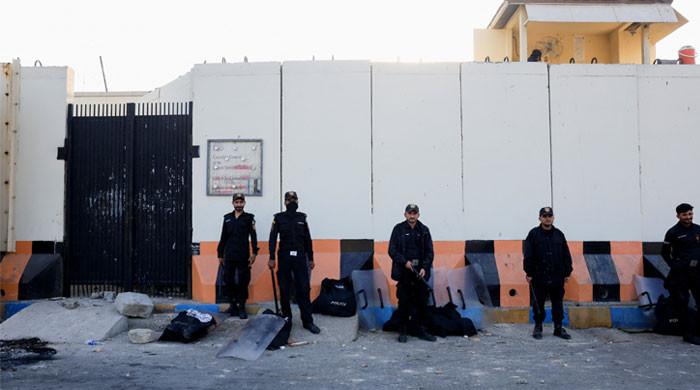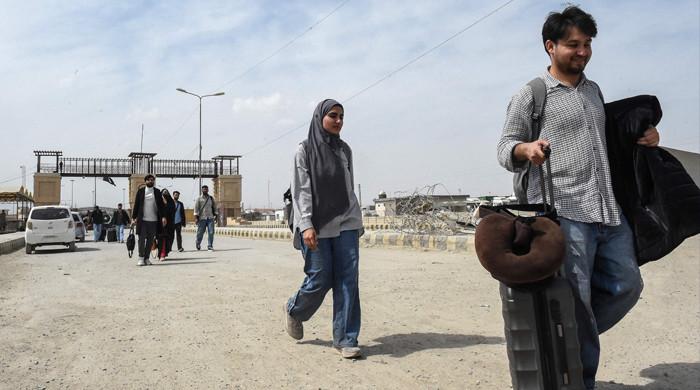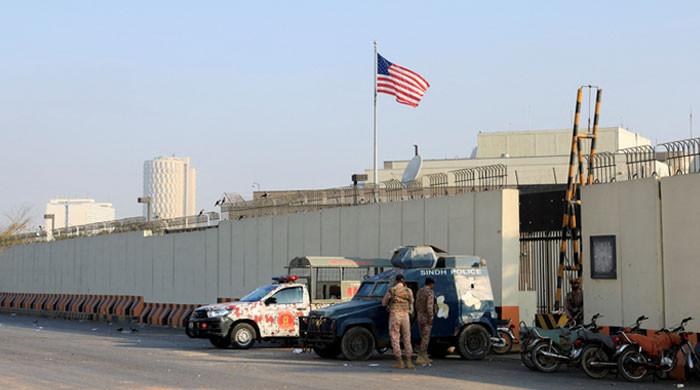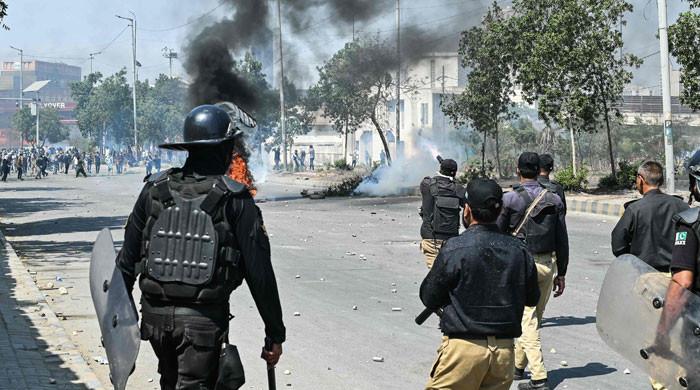SC bans installation of billboards on private properties in Karachi
Supreme Court orders that a survey be conducted and compliance report be submitted within one month
August 02, 2016
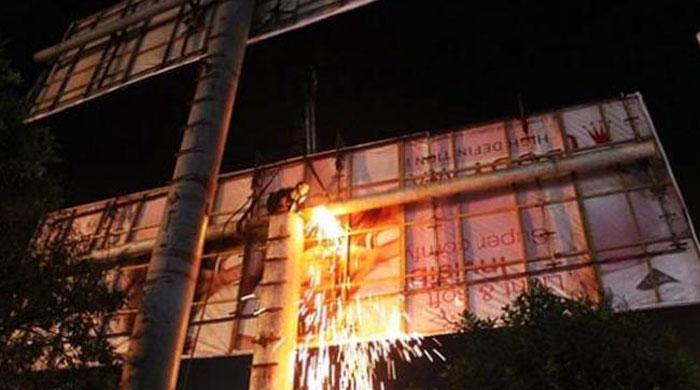
KARACHI: The Supreme Court on Tuesday imposed a ban on illegal billboards mounted on Karachi's private buildings, after it earlier ordered heads of civic agencies and cantonment boards to remove illegal hoardings from their jurisdictions.
The apex court said that it could not permit the installation of dangerous signboards on bridges and public places in the metropolis.
A three-judge bench was hearing the case at the Supreme Court’s Karachi registry pertaining to the removal of illegal billboards and hoardings across the city, which the court says can prove to be dangerous for the public in case of natural emergencies like rainstorms and earthquakes.
During the hearing today, additional attorney general Salman Talibuddin informed the court that billboards have been removed from public places in the city, to which the court responded that there were still hoardings installed on footpaths in the upscale Zamzama area.
The court observed that the boards mounted on private properties could also prove to be dangerous, along with search-lights installed on bridges which can be unsafe for drivers.
"God forbid, what will happen to this city in case of an earthquake,” inquired the Justice Amir Hani Muslim.
In its short ruling, the apex court asked the session judge in Karachi to complete a survey of the city and submit a report on the matter within a month.
During the hearing of the case on Monday, the Cantonment Board Faisal had informed the court that there were still 57 billboards remaining within the jurisdictions of the Central Ordnance Depot (COD) and the PNS Karsaz.
The CBF submitted that 26 billboards were still installed within the jurisdictions of COD station headquarters and 31 in PNS Karsaz and as these areas fell within the administrative control of the army and the navy, these authorities had to report on their part in terms of the removal of the billboards.
The Cantonment Board Clifton had also filed a compliance report mentioning that all billboards – 228 – within its jurisdiction had been removed.
The court was informed by the additional attorney general that 98 percent of the billboards in the city had been removed and sought further time for the removal of the remaining ones.
The court had also warned that it would frame contempt charges against the heads of civic agencies and cantonment boards if the billboards installed illegally on footpaths were not removed.
The court had observed that the permission for setting up billboards could not be granted by land-owners of civic agencies as the act was in violation of the fundamental rights of the citizens.
At the July 22 hearing of the case, the court had directed the heads of civic agencies and cantonment boards to remove the remaining billboards from the stretch of their foundations within three days and submit their reports before the court on July 29.
In August last year, the apex court had directed the KMC and cantonment boards to remove all billboards observing that proceedings would be initiated against the heads of civic agencies and land owning departments if the orders were not complied with in letter and spirit.
The court had observed that the permission for the installation of billboards could not be given by land-owners or civic agencies as the act in violation of the fundamental rights of citizens.
Proceedings of the case were initiated in 2011 on an application filed by a cantonment board that had challenged the Sindh High Court order that the cantonment board could not levy advertisement tax on outdoor billboards and hoardings within its jurisdiction.




